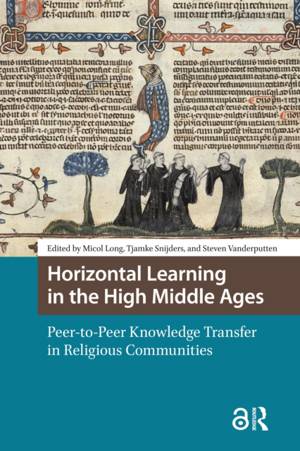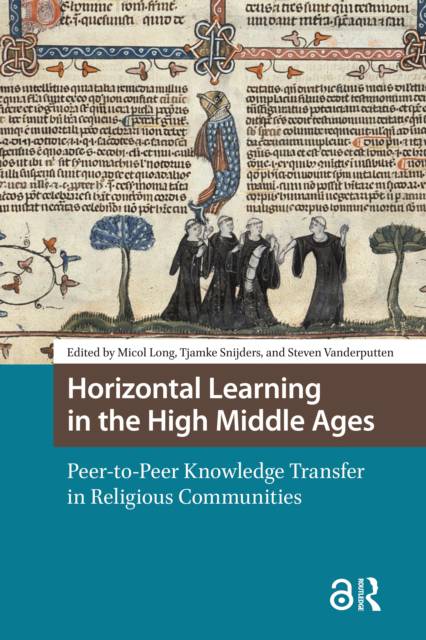
- Afhalen na 1 uur in een winkel met voorraad
- Gratis thuislevering in België vanaf € 30
- Ruim aanbod met 7 miljoen producten
- Afhalen na 1 uur in een winkel met voorraad
- Gratis thuislevering in België vanaf € 30
- Ruim aanbod met 7 miljoen producten
Horizontal Learning in the High Middle Ages
Peer-To-Peer Knowledge Transfer in Religious Communities
€ 162,45
+ 324 punten
Omschrijving
The history of medieval learning has traditionally been studied as a vertical transmission of knowledge from a master to one or several disciples. Horizontal Learning in the High Middle Ages: Peer-to-Peer Knowledge Transfer in Religious Communities centres on the ways in which cohabiting peers learned and taught one another in a dialectical process - how they acquired knowledge and skills, but also how they developed concepts, beliefs, and adapted their behaviour to suit the group: everything that could mold a person into an efficient member of the community. This process of 'horizontal learning' emerges as an important aspect of the medieval learning experience. Progressing beyond the view that high medieval religious communities were closed, homogeneous, and fairly stable social groups, the essays in this volume understand communities as the product of a continuous process of education and integration of new members. The authors explore how group members learned from one another, and what this teaches us about learning within the context of a high medieval community.
Specificaties
Betrokkenen
- Uitgeverij:
Inhoud
- Aantal bladzijden:
- 302
- Taal:
- Engels
- Reeks:
Eigenschappen
- Productcode (EAN):
- 9789462982949
- Verschijningsdatum:
- 19/07/2019
- Uitvoering:
- Hardcover
- Formaat:
- Genaaid
- Afmetingen:
- 160 mm x 236 mm
- Gewicht:
- 589 g

Alleen bij Standaard Boekhandel
+ 324 punten op je klantenkaart van Standaard Boekhandel
Beoordelingen
We publiceren alleen reviews die voldoen aan de voorwaarden voor reviews. Bekijk onze voorwaarden voor reviews.









